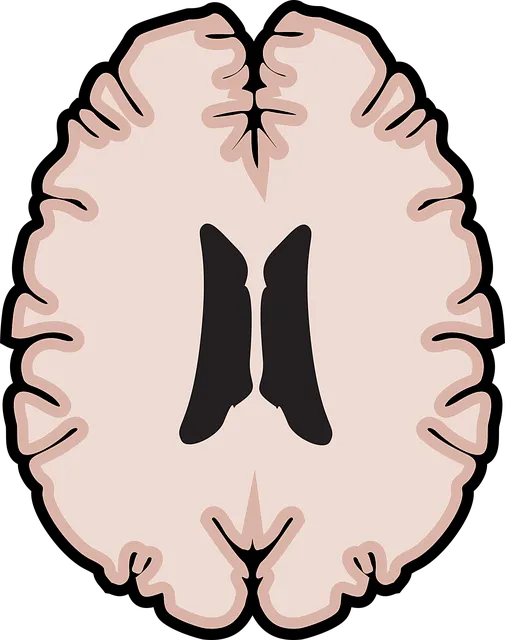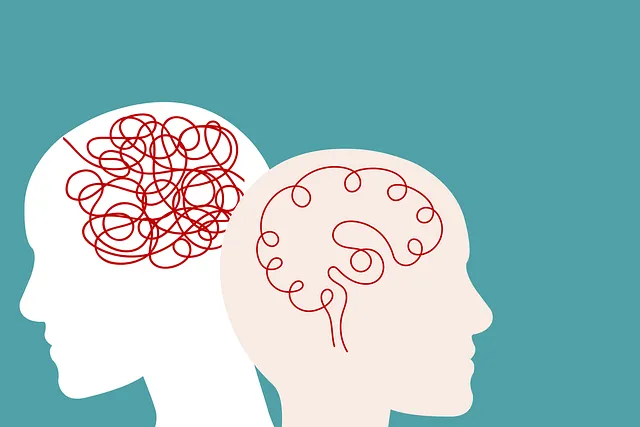Lone Tree's Kaiser offers comprehensive inpatient mental health services focusing on emotion regulation through workshops teaching mindfulness, CBT, and other evidence-based strategies. These holistic approaches, combined with individual therapy, group support, and public awareness campaigns, empower individuals to manage stress, cultivate positive thinking, and navigate emotional challenges effectively, fostering a culture of mental well-being within the community.
Emotion regulation techniques are essential tools for navigating life’s challenges. This article explores the fundamental concepts of emotion regulation, delving into how institutions like Kaiser Inpatient Mental Health Services address these needs. We highlight effective teaching techniques and introduce Lone Tree’s innovative approach to revolutionizing mental well-being. By understanding and mastering these skills, individuals can enhance their coping mechanisms and lead more fulfilling lives. Discover how both established practices and emerging strategies contribute to a holistic approach to emotional health.
- Understanding Emotion Regulation: Unraveling the Basics
- Kaiser Inpatient Mental Health Services: A Closer Look
- Teaching Techniques: Effective Tools for Coping
- Lone Tree's Approach: Revolutionizing Mental Well-being
Understanding Emotion Regulation: Unraveling the Basics

Emotion regulation is a crucial skill that involves understanding and managing one’s feelings effectively. It is a vital process, especially for individuals navigating mental health challenges, such as those seeking treatment at Kaiser’s inpatient facilities like Lone Tree. In the realm of mental health care, teaching emotion regulation techniques can be a game-changer in helping patients cope with intense emotions, reduce anxiety, and enhance overall well-being.
By unraveling the basics of emotion regulation, mental health professionals can foster a significant shift in how individuals perceive and interact with their feelings. This involves recognizing that emotions are a natural part of life, but learning to respond to them mindfully rather than reacting impulsively. Techniques such as mindfulness meditation, cognitive reframing, and emotional awareness exercises empower folks to navigate the symphony of their emotional landscape, ultimately reducing the impact of mental illness stigma and promoting healthier coping mechanisms. Additionally, risk management planning for mental health professionals is enhanced when they can guide patients in understanding and regulating emotions, ensuring a safer and more supportive environment for recovery.
Kaiser Inpatient Mental Health Services: A Closer Look

Lone Tree residents looking for comprehensive mental health support can turn to Kaiser Inpatient Mental Health Services. This level of care is designed for individuals facing severe or acute mental health challenges, providing a safe and structured environment for stabilization and recovery. The services offered at Kaiser cater to a wide range of needs, ensuring that patients receive personalized treatment plans.
Inpatient programs often include a blend of individual therapy sessions, group support meetings, and various evidence-based practices such as mindfulness exercises, self-awareness coaching, and depression prevention strategies. Mental wellness coaching programs play a significant role in helping patients develop coping mechanisms and build resilience. Through these programs, individuals can learn valuable Self-Awareness Exercises to manage their emotions effectively. By delving into these resources, Kaiser aims to foster holistic healing and empower patients to take charge of their mental wellness.
Teaching Techniques: Effective Tools for Coping

At Lone Tree, Kaiser offers a range of effective emotion regulation techniques teaching through its inpatient mental health services. These workshops and programs are designed to empower individuals with tools to manage stress, cultivate positive thinking, and navigate emotional challenges. The Stress Management Workshops Organization plays a pivotal role in this process by providing structured learning environments where participants can explore mindfulness exercises, cognitive behavioral therapy (CBT), and other evidence-based strategies.
In addition, public awareness campaigns development has been a key initiative to reach a broader audience. By spreading information about emotion regulation techniques, Kaiser aims to foster a culture of mental well-being within the community. These efforts not only support individuals in their daily lives but also contribute to a more resilient and emotionally intelligent society as a whole.
Lone Tree's Approach: Revolutionizing Mental Well-being

Lone Tree’s innovative approach to emotion regulation techniques is transforming mental well-being, offering a beacon of hope for those navigating challenging emotional landscapes. Their comprehensive programs focus on empowering individuals with effective tools to manage and understand their emotions, revolutionizing the way we address mental health concerns. By combining traditional therapeutic methods with modern strategies, Lone Tree provides an immersive experience that goes beyond mere talk therapy.
In contrast to typical inpatient mental health facilities like Kaiser, Lone Tree prioritizes holistic healing. They foster a supportive environment where individuals can learn, grow, and develop crisis intervention skills tailored to their unique needs. Through public awareness campaigns and mental health initiatives, they aim to destigmatize emotional struggles and encourage early intervention. This development aligns with the broader goal of Mental Health Awareness, ensuring folks receive guidance and support before reaching critical crises.
In conclusion, emotion regulation techniques offer a powerful tool for enhancing mental well-being. As discussed, both Kaiser’s inpatient mental health services and Lone Tree’s innovative approach provide effective ways to navigate and manage emotions. By understanding the basics of emotion regulation and utilizing specific teaching techniques, individuals can gain greater control over their emotional responses. Whether through structured programs or personalized strategies, these methods have the potential to revolutionize coping mechanisms, especially for those facing mental health challenges.






